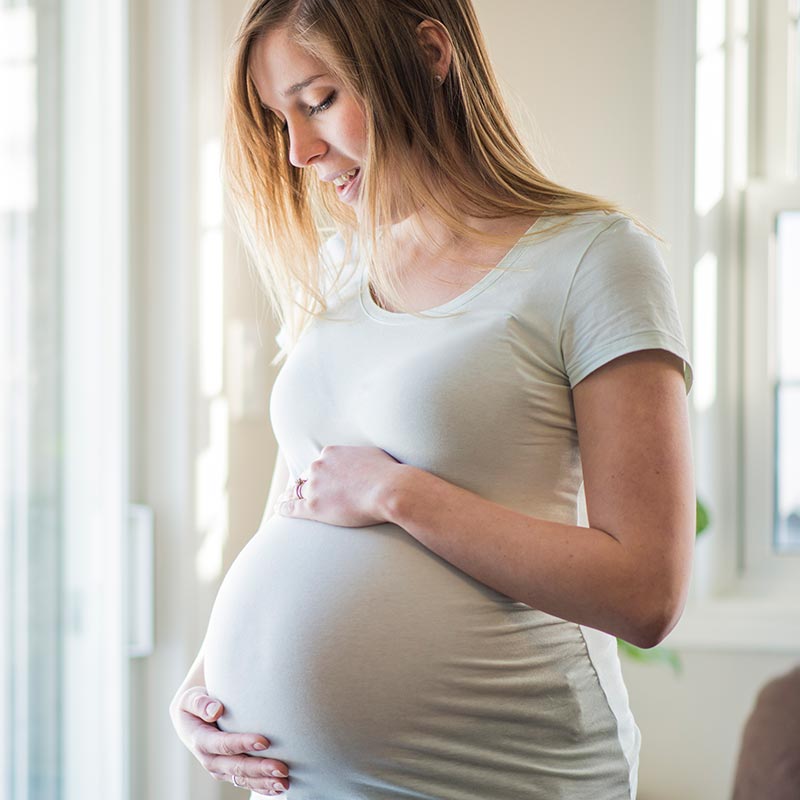Your period was due one or two days ago and now you’re left wondering if your missed visitor might be a sign that you’re pregnant. It’s important to realize that signs of pregnancy pop up at different times in different women, with some experiencing very few indications that there’s a baby on board until weeks after conception. It’s also perfectly possible to be pregnant without noticing any of these signs of pregnancy.
When Will Symptoms Begin?
The earliest signs of pregnancy, such as sensitivity to smells and tender breasts, may show up as soon as a few days after conception while other symptoms like spotting might appear around one week after sperm and egg meet. Increased urinary frequency and still other symptoms often aren’t experienced until two or more weeks into a pregnancy.
Early Signs of Pregnancy
According to the American Pregnancy Association, if you experience some or all of these symptoms, it’s probably time to confirm whether you’re pregnant or not:
- Bleeding, or a missed period – For up to 30 percent of new moms, light spotting or implantation bleeding before an expected period (around 6 to 12 days after conception) can be a sign of pregnancy. This may or may not be accompanied by a menstrual-like cramp.
- Nausea – That telltale queasy feeling in your stomach known as morning sickness can hit you at any time of day beginning just a few short weeks into your pregnancy, but it’s most likely to begin around week 6.
- Sore breasts – A tingly, sore and/or full feeling in your breasts may be a sign that your body is being prepared for the milk-making to come.
- Food aversions or food cravings – The reason some women go after ice cream during pregnancy or no longer have a hankering for French fries isn’t well known, but it’s okay to pursue cravings or avoid the things that no longer sound good if you get the nutrients you need for baby and you.
- Fatigue – Pregnancy takes a great deal of energy to build a life-support system for your baby, so you may feel zapped of your usual pep early on.
- Mood swings – Expecting mothers frequently experience changes in disposition. This is thought to be caused by the hormonal changes that affect the brain.
- High basal body temperatures – A rise in your basal body temperature of around 1 degree could give you advanced notice of the big news.
Implantation Bleeding or Your Period?
As a fertilized egg attaches to the uterus, light bleeding can occur, known as implantation bleeding. It’s important to note that the blood will typically be more pinkish or a dark brown color, and look different than your regular period. It will also occur between 10 and 14 days after ovulation, when your period will usually begin 14 days after.
When You Can Take a Pregnancy Test
After an egg is fertilized, it travels to the uterus and implants itself in the uterine wall. At this stage, tiny amounts of the pregnancy hormone hCG (human chorionic gonadotropin) start to appear in your urine. This is the hormone that home pregnancy tests test for. hCG levels rise rapidly in early pregnancy. Many newly pregnant women will have a sufficient amount of hCG by 7 to 10 days post-ovulation to confirm pregnancy with a highly sensitive home pregnancy test.
Could a Negative Really Be Positive?
Could a negative test actually be a positive? Possibly. If you test too early in your cycle, you could get a negative result even though you may still be pregnant. This is because levels of hCG vary from woman to woman and there may not yet be enough hormone available for the test to come back positive. Wait a few days and test again.
A False Positive?
A false positive pregnancy test is rather rare. The two most common explanations for a false positive test center on the use of hCG-containing fertility drugs and the improper use or interpretation of a test. Remember, the symptoms of early pregnancy discussed above could signal that something else is going on. If you have questions or concerns about the results of a home pregnancy test or symptoms you may be experiencing, consult with a qualified healthcare professional.



